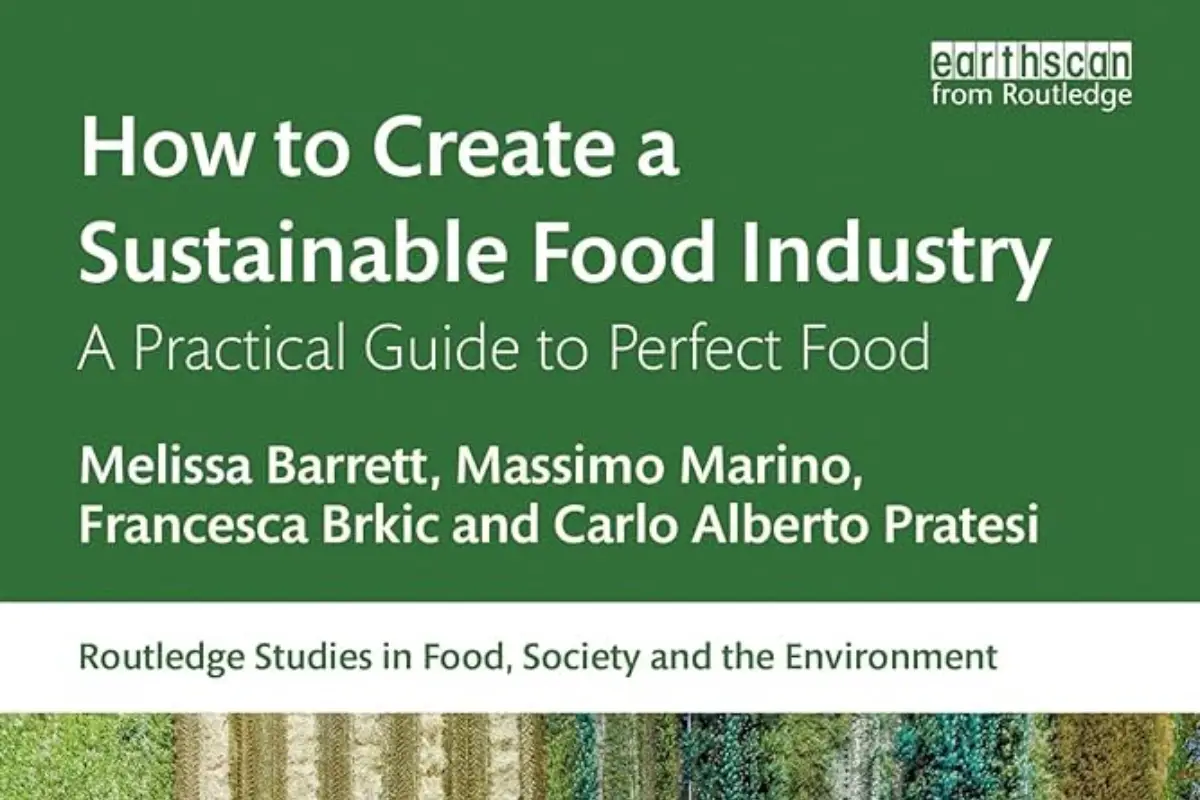
Is there such a thing as perfect food?
A dss+' new book takes readers on a journey along the food value chain, from farm to fork, exploring key opportunities to increase positive impacts and circularity

The volume, published by Routledge, will be presented today at Cop28 in Dubai.
The essay "How To Create A Sustainable Food Industry - A Practical Guide to Perfect Food" will be presented today in the context of COP28 in Dubai. Edited by Melissa Barrett, Massimo Marino, Francesca Brkic and Carlo Alberto Pratesi , the volume, published by Routledge, is created on the initiative of dss+, a provider of consultancy services for the management of sustainable operations with the aim of saving human lives and creating a sustainable future. Dss+ enables companies to develop organizational and people capabilities, manage risks, improve operations, achieve sustainability goals and operate more responsibly.
Written by experts from the food industry and academia, the book explores new opportunities to transform and improve the value chain in the food world. In the text, sustainable operations experts explore choices and decisions that aim to protect and transform the global food system. The objective is to demystify a series of issues related to food: to do so, case studies are used to provide indications on how to analyze sustainability and make the right strategic choices to effectively guide a transformation that is centered on people, both within organizations and across value chains.
According to FAO data, the food industry is responsible for 31% of greenhouse gas emissions, 70% of global freshwater use, 38% of land consumption and 80% of biodiversity loss. Commenting on the focus of the new book, Melissa Barrett, Global Managing Director, Corporate Impact & Practices at dss+, said: "I and the other authors wanted to create a practical guide to help food industry companies navigate the complex issues of sustainability. To achieve this goal, we leveraged extensive experience, data and tools that could help simplify decision-making processes and guide concrete actions to support a sustainable transformation."
“The time has come for companies to decide what is most important for them and their customers,” says co-author Carlo Alberto Pratesi, professor of marketing at "Roma Tre" University and president of the European Institute of Innovation for Sustainability (EIIS). "What may seem perfect for some leaves room for improvement for others. Most of us would like food that meets all sustainability goals, but compromises are inevitable. We hope that our book can help companies find their perfect food, in the belief that there is nothing more practical than a good theory."
Demand for food is growing, with the world's population expected to reach 10 billion by 2050. According to the United Nations Environment Program (UNEP), demand for food is expected to increase by 60% by 2050 The authors argue that the growth of the global population and the increase in demand for food and resources represent a decisive challenge for the food and agricultural industry. To meet increased production demand and manage the planet's natural resources, industry and society must radically transform towards a sustainable economy. More broadly, the need for transformation extends to consumer demand, across business, manufacturing dynamics and supply chains.
In introducing the book, Juan Aguiriano, Group Head of Sustainability and Technology Ventures at Kerry Group, writes: "How can we design a food system that is able to feed 10 billion people with tasty, healthy and nutritious food every day, that it is culturally acceptable and fair to people, that it does not contribute to the spread of diseases, that it does not waste 30% of the food produced, that it does not exhaust 70% of the available water and that it is capable of regenerating soils and biodiversity , while limiting global warming to below 1.5°? Transforming food systems and combining human ingenuity with leaders who make good, informed decisions, as recommended in this book, is a winning combination."
About the other authors. Massimo Marino is an environmental engineer who has focused his career on calculating and mitigating environmental impacts of industry processes, particularly within the agriculture, food and beverage industry. He has a PhD from the Polytechnic University of Torino, and is the author and co-author of many publications, including the Life Cycle Analysis Manual (2008).
Francesca Brkic is a manager at dss+ and the founder of an early stage start-up in the circular economy of infant food, Little Origins. She has an MSt in Sustainability Leadership from the University of Cambridge, UK, where she focused on frontier approaches to sustainability, such as circular economy and regenerative agriculture.
EFA News - European Food Agency